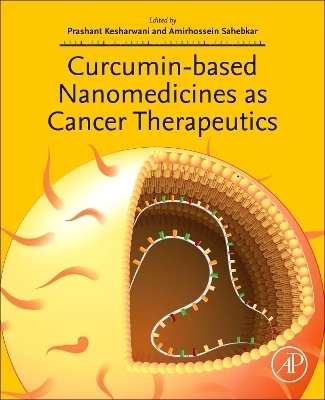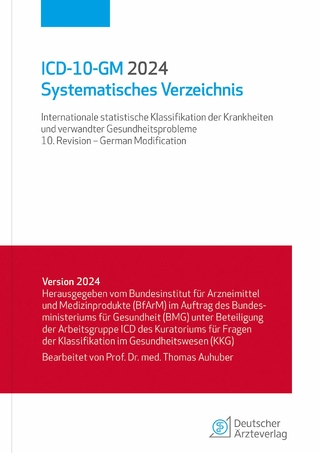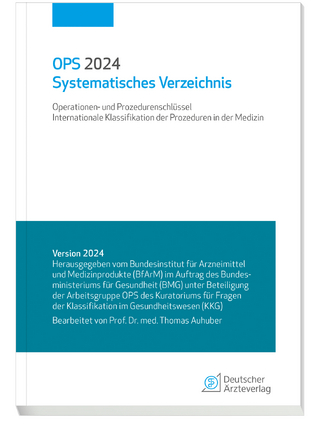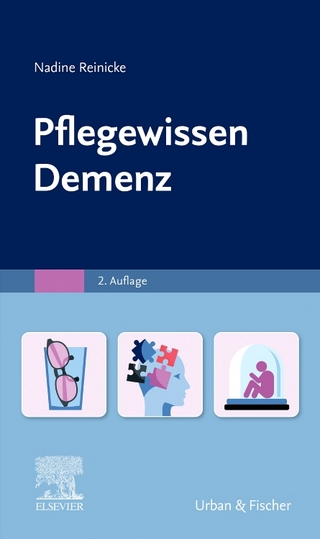
Curcumin-Based Nanomedicines as Cancer Therapeutics
Academic Press Inc (Verlag)
978-0-443-15412-6 (ISBN)
Nanocurcumin has been widely explored for the treatment of various cancers; however, the scientific literature is inconsistent in style and structure and scattered across many sources. By providing an explicit account on vital aspects on nanocurcumin-based anticancer delivery approaches and discussing the perspectives of the technologies explored so far based upon the findings outlined, the book offers updated and in-depth knowledge on the topic in one single source written by global leading experts.
In addition, the book aims to stimulate the interest of the academic researchers, industrial scientists, businessmen, and young scholars to address key multidisciplinary challenges faced by nanotechnologists to foster the desired collaboration among biologists, chemists, physicists, engineers, and clinicians to find proper and efficient new cancer treatments.
Dr. Amirhossein Sahebkar received his PharmD and PhD (in Medical Biotechnology) degrees from the Mashhad University of Medical Sciences (MUMS; Mashhad, Iran). His research focuses on the investigation of novel natural products for the management of severe cardiometabolic disorders. He has conducted numerous research projects dealing with basic, experimental, and clinical research on curcuminoids. Dr. Prashant Kesharwani is an assistant professor of pharmaceutics at School of Pharmaceutical Education and Research, Jamia Hamdard, New Delhi, India. He has more than 12 years of teaching, research, and industrial experience at international levels from various countries, including the United States, Malaysia, and India. An overarching goal of his current research is the development of nanoengineered drug delivery systems for various diseases. He has more than 300 international publications in well-reputed journals and more than 25 international books (Elsevier). He is a recipient of many research grants from various funding bodies. He is also the recipient of several internationally acclaimed awards, such as “USERN Laureate award, most prestigious “Ramanujan Fellowship Award. He actively participates in outreach and scientific dissemination for the service of the wider community.
Part-A: Curcumin: Introduction, structure, and physicochemical attributes
1. Curcumin: historical background, introduction, structure, and physicochemical attributes
2. Curcumin as a pharmaceutical leader
3. Chemical structure and molecular targets of curcumin for cancer therapy
4. Structural features of curcumin and its effects on cancer-related signaling pathways
5. An overview of cellular, molecular, and biological aspect(s) of curcumin in cancer
Part-B: Smart drug delivery approaches for curcumin delivery in cancer therapy
6. Curcumin-drug conjugate-based drug delivery as cancer therapeutics
7. Curcumin microcapsule-based drug delivery as cancer therapeutics
Part-C: Recent advances and regulatory aspects of gold nanoparticles
8. Nanoemulsion-based curcumin delivery systems as cancer therapeutics
9. Micelle-based curcumin delivery systems as cancer therapeutics
10. Liposome-based curcumin delivery systems as cancer therapeutics
11. Inorganic nanoparticle-based curcumin delivery as cancer therapeutics
12. PLGA nanoparticle-based curcumin delivery as cancer therapeutics
13. Polymersomes-based curcumin delivery as cancer therapeutics
Part-D: Recent advances in nanocurcumin delivery in cancer therapy
14. Biopolymer-based formulations for curcumin delivery toward cancer management
15. Nanohybrid drug delivery approach as a novel opportunity for curcumin delivery in cancer
16. Codelivery of curcumin and siRNA as anticancer therapeutics
Part-E: Challenges and future perspectives of nano-curcumin drug delivery
17. Challenges associated with nanocurcumin anticancer drug delivery systems
18. Curcumin-loaded nanoparticles used for in vivo cancer models: an approach about their physicochemical properties and mechanism of action
19. Clinical trials, patents, and marketed products of nanocurcumin-based anticancer drug delivery systems
| Erscheinungsdatum | 05.03.2024 |
|---|---|
| Verlagsort | San Diego |
| Sprache | englisch |
| Maße | 191 x 235 mm |
| Gewicht | 1010 g |
| Themenwelt | Informatik ► Weitere Themen ► Bioinformatik |
| ISBN-10 | 0-443-15412-0 / 0443154120 |
| ISBN-13 | 978-0-443-15412-6 / 9780443154126 |
| Zustand | Neuware |
| Haben Sie eine Frage zum Produkt? |
aus dem Bereich


